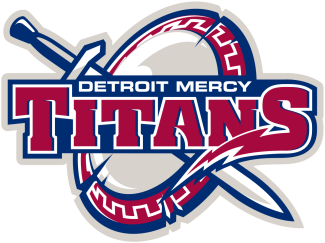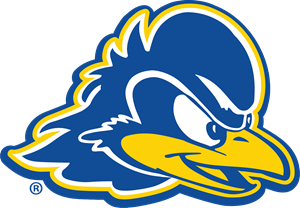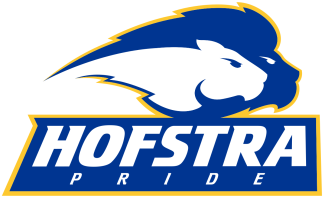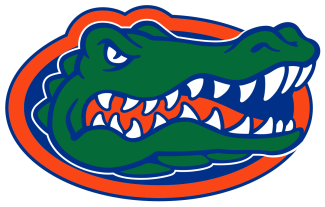EAST HARTFORD, Conn. — A penalty for an impermissible timeout. A two-goal rally in the final minute of regulation. A game-winning goal by a player who stumbled over his own feet.
Improbably, Penn and Yale saved the best for last in an unforgettable NCAA quarterfinal weekend — and an exceptional three-game series between the Ivy League rivals this season.
Yale midfielder Jack Tigh zipped one past Penn goalie Reed Junkin as the fifth-seeded Bulldogs finally got the better of the fourth-seeded Quakers this season, a 19-18 triumph before 8,568 at Rentschler Field to send the defending tournament champions back to Memorial Day weekend.
“I can’t imagine if you’ve never seen it before or just turned it on and you were a casual fan, what an impression it must have made on people who didn’t know a lot about the game,” Yale coach Andy Shay said. “That was one of the best games I’ve ever seen or been a part of.”
Jackson Morrill had four goals and three assists and Lucas Cotler added four goals and an assist for Yale (14-3), which will face top-seeded Penn State (16-1) in Saturday’s semifinals in Philadelphia. The Bulldogs are a responsible for dealing the Nittany Lions their only loss, a 14-13 setback on Feb. 23.
They’ll get another opportunity to derail Penn State thanks to Tigh, a senior midfielder with 27 goals this season. After falling to the sod, he collected himself, slipped between a pair of defenders and then shot over two more Quakers plus Junkin (14 saves) to deposit the game-winner.
“I don’t know if it’s because I’m not used to the grass,” Tigh said. “I don’t know, but I tripped over my feet. I lost the ball. Thought it was still in my stick at first but I saw it was right underneath me, scooped it up with one hand and got really lucky to split the double and I found the back of the net.”
Four players — Mitch Bartolo, Tyler Dunn, Sean Lulley and Simon Mathias — recorded hat tricks for the Quakers (12-4), whose 12-game winning streak came to an end.
It was going to be hard to top the first two rounds between the conference rivals this season. Penn outlasted Yale 13-12 in triple overtime on March 30 at Franklin Field after forcing extra time with a goal with 0.1 seconds left in regulation, a result that ultimately decided the Ivy League regular season title. The Quakers completed the Ivy double on May 5 with a 12-11 triumph in the conference title game.
All that was at stake this time was Yale’s third all-time trip to the semifinals, and Penn’s first since 1988.
“It did feel a little bit like a heavyweight fight,” Penn coach Mike Murphy said.
Yale seemed to be in decent shape when Morrill finished off a Cotler feed to make it 18-16 with 3:13 left — or at least as decent a shape as it could be in for what eventually would tie for the second-highest scoring game in NCAA tournament history.
But Penn received some help when Shay called a timeout after a stoppage of play in the middle of the field. The defensive team can call timeout after a penalty or when the ball goes out of bounds, but not after a stoppage created within the field of play. That prompted a 30-second illegal procedure penalty, and Dunn scored on the ensuing extra-man with 46.7 seconds to go.
Mathias then beat Yale defenseman Chris Fake and goalie Jack Starr (eight saves) with 4.4 seconds left to tie it. Yale faceoff ace TD Ierlan, who was 22 of 40 almost entirely against Penn’s Kyle Gallagher, got a clean win but couldn’t get a shot off in time.
“In overtime I kept thinking about these seniors and the thought I might have ended their careers with one of the dumbest things I’ve ever done,” Shay said. “These guys kept saying ‘We got it, we got it.’ Then after the game, this has never happened to me but I can only think it might be like when you get in a car accident with your kids and everyone’s OK and you dodged a bullet. … I would never forgive myself if I ended their careers.”
Instead, Yale moves on, having tested its postseason mettle in ways last year’s impressive title run never demanded. The Bulldogs had been 0-5 in one-goal NCAA tournament games prior to Sunday.
Tigh was grateful to do his part and provide some relief to his coach at the same time.
“It meant the world,” Tigh said. “I owe this guy so much more than just that. The stuff that he’s done for me these past four years has been remarkable. It’s something every college kid really wants. He’s a coach, a fearless leader and someone I trust. He might have made that call. He always tells us to reset, and I gave him that reset and he did and he led us in that overtime.”
Shay — and Murphy — had their hands full all day with a game that, appropriately for these two teams in this particular season, never got too lopsided. Yale led by two at four junctures, and Penn never got ahead by more than one.


























































